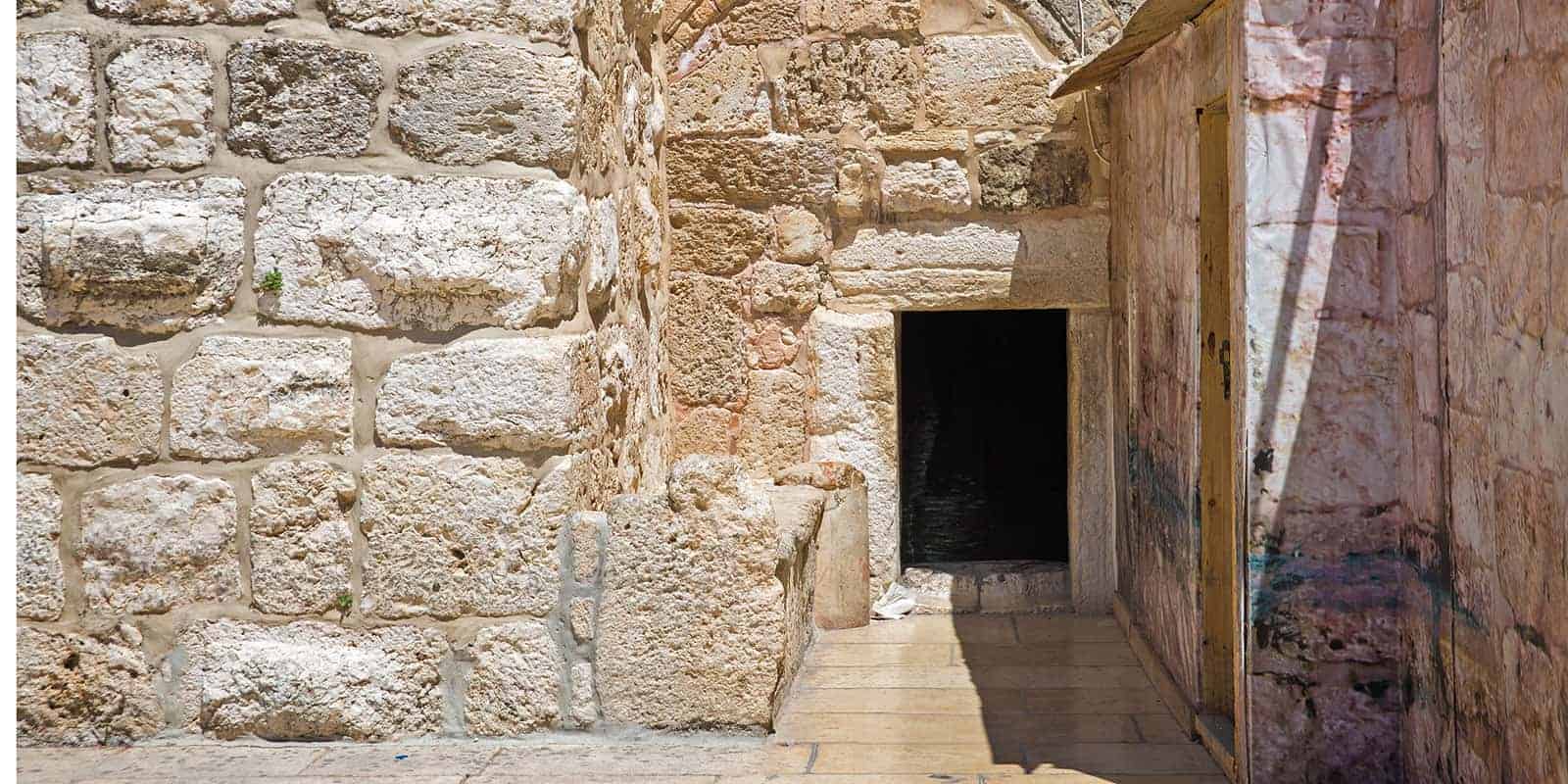
It’s a small door, only about four feet tall and two feet wide. You have to bow down to go through it. The threshold is surrounded by three large stones. For security reasons, there is usually an armed soldier standing next to it. They call it “The Door of Humility.” It is the door into the Church of the Nativity in Bethlehem—one of the oldest churches in the world. This church sits over the cave, where according to reliable tradition, Jesus was born.
Some say the door was made small to prevent horsemen from entering the basilica during the Ottoman period. Others say, the tiny door causes everyone who enters to bow before they come in, as a check to our own pride and egos. So now all pilgrims who visit the sacred site of Jesus’ birth, must bow down to enter.
They must bow as the Magi did in bringing their gifts from afar. The gospels say that as they approached the child, they fell down and worshiped, and only then offered their treasures. They approached him in great humility.
It’s a small door. The womb of a maiden served as a door of sorts. It was the gateway of God’s messiah into this world—another door of humility. He had to bow to enter it.
For the one born on that special day was the eternal Son of God, the Word, who was there at creation and made everything in the world.
Now that we have a better idea of just how large the universe is, the thought of God coming near like this is staggering.
We still don’t know the exact size of the universe. The current observable universe, we are told, has a diameter of about 92 billion light years. Although, astronomers add, it extends much further than that.
So the Word that was in the beginning, the Word by whom all things were made, drew near with that stunning birth in Bethlehem. It “moved into the neighborhood” as the Message puts it. It drew near to our tiny galaxy, to our tiny solar system, and to our tiny planet. Theologians call this the “descent” of the Son of God.
The Westminster Shorter Catechism helps us grasp the work of our Redeemer by speaking of the two stages of experience and activity through which he passed—his humiliation and his exaltation. It says, “Christ the Son of God, became man by taking to himself a true body and a reasonable soul, being conceived by the power of the Holy Ghost, in the womb of the virgin Mary, and born of her, yet without sin.”[1]
This descent involved him humbling himself in his birth, as it would later be displayed in his life and death on a cross.
Think of the voluntary confinement of the second person of the Trinity to such a low condition! God the Son, is suddenly resting in a womb, soon to experience a messy birth, be wrapped in cloths, and rest in an animal feed box.
Paul captures this in Philippians 2 when he speaks of Christ Jesus “who, though he was in the form of God, did not count equality with God a thing to be grasped, 7but emptied himself, by taking the form of a servant,b being born in the likeness of men. 8And being found in human form, he humbled himself by becoming obedient to the point of death, even death on a cross.”
That’s humiliation. Followed by his exaltation: his resurrection, ascension and promised return.
Paul continues: “Therefore God has highly exalted him and bestowed on him the name that is above every name, 10so that at the name of Jesus every knee should bow, in heaven and on earth and under the earth, 11and every tongue confess that Jesus Christ is Lord, to the glory of God the Father.”
Did you get the bowing part?
Once again, it’s a small door. If you ever hope to see the real glory of Christmas, it requires that you bow before the Christ of Christmas and confess him as your Lord and Savior. It requires that you bow your pride and walk through another door of humility.
Not only will those who walk in that small door see Christ’s glory, but, according to Jesus, they will be exalted as well (Mt 23.12).
